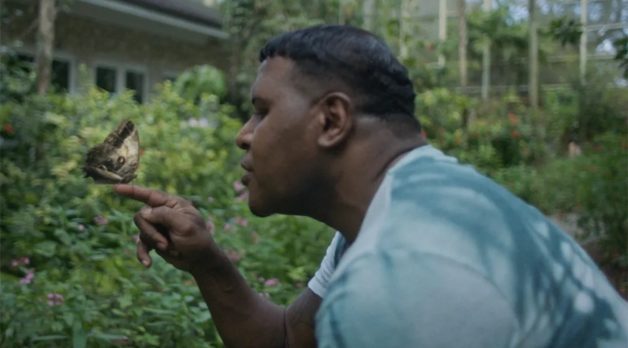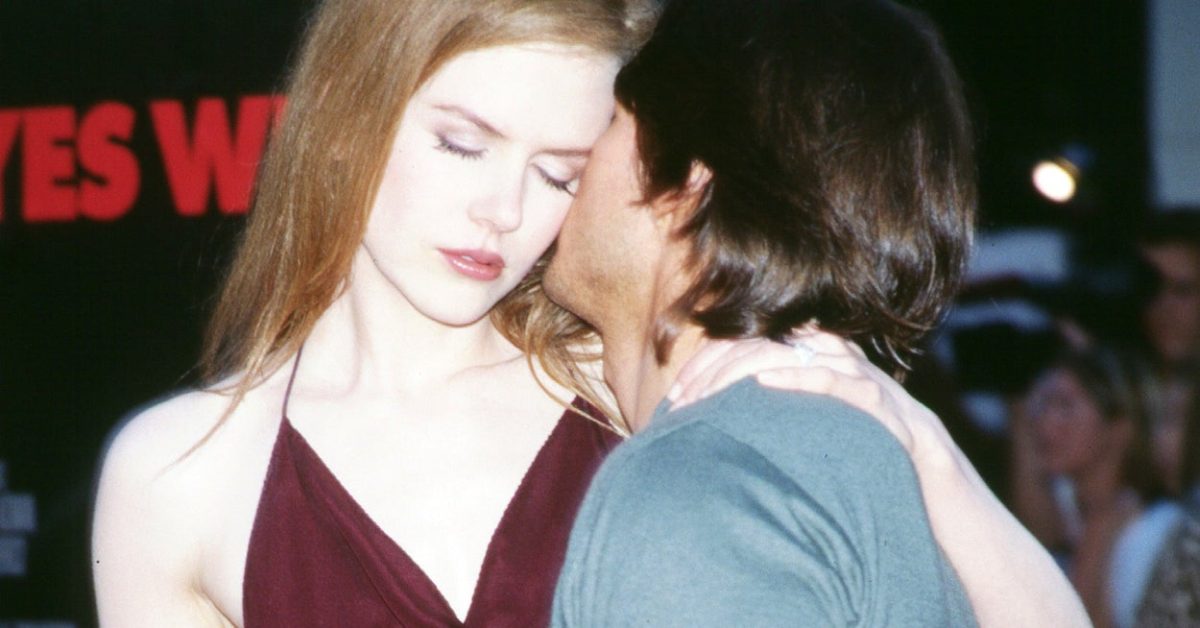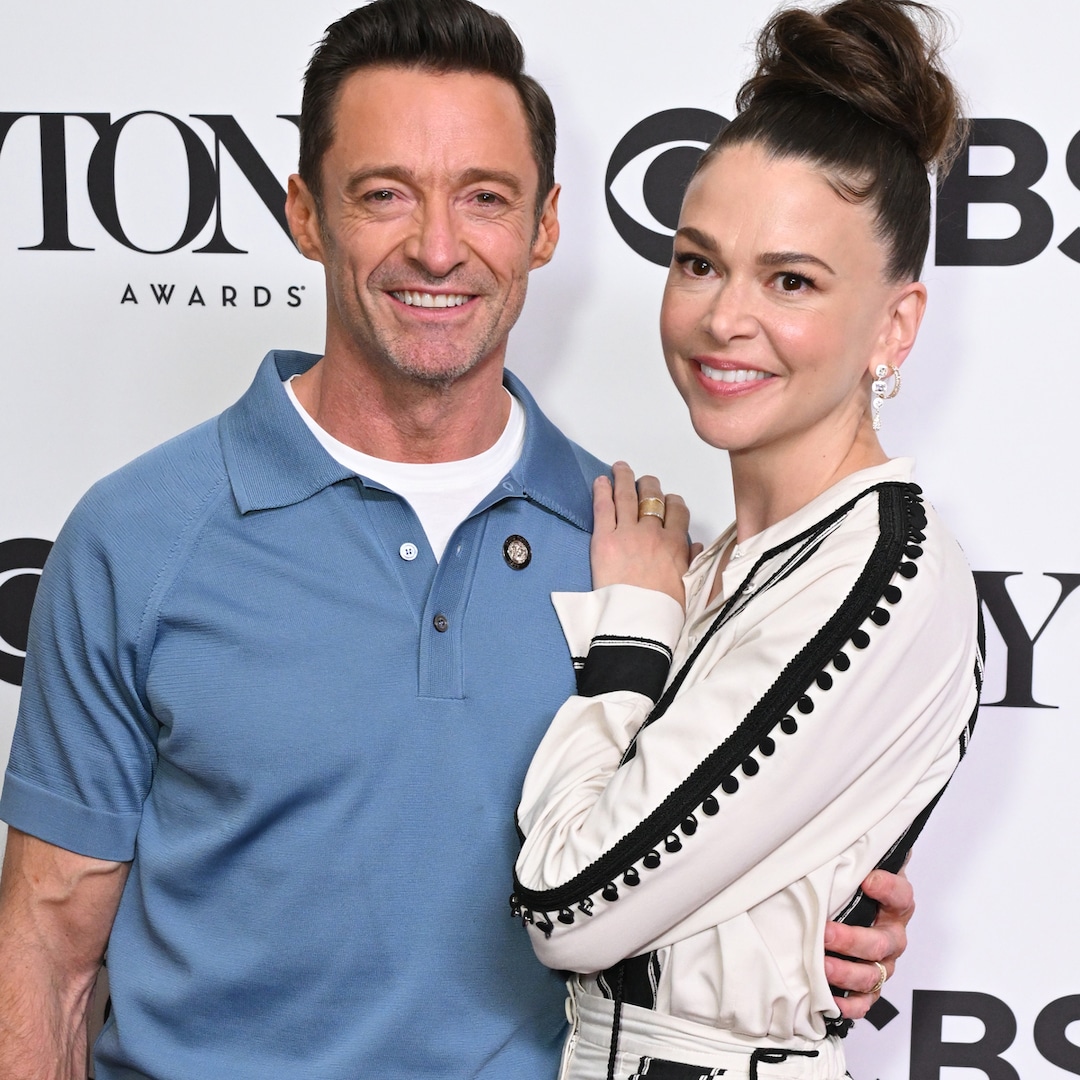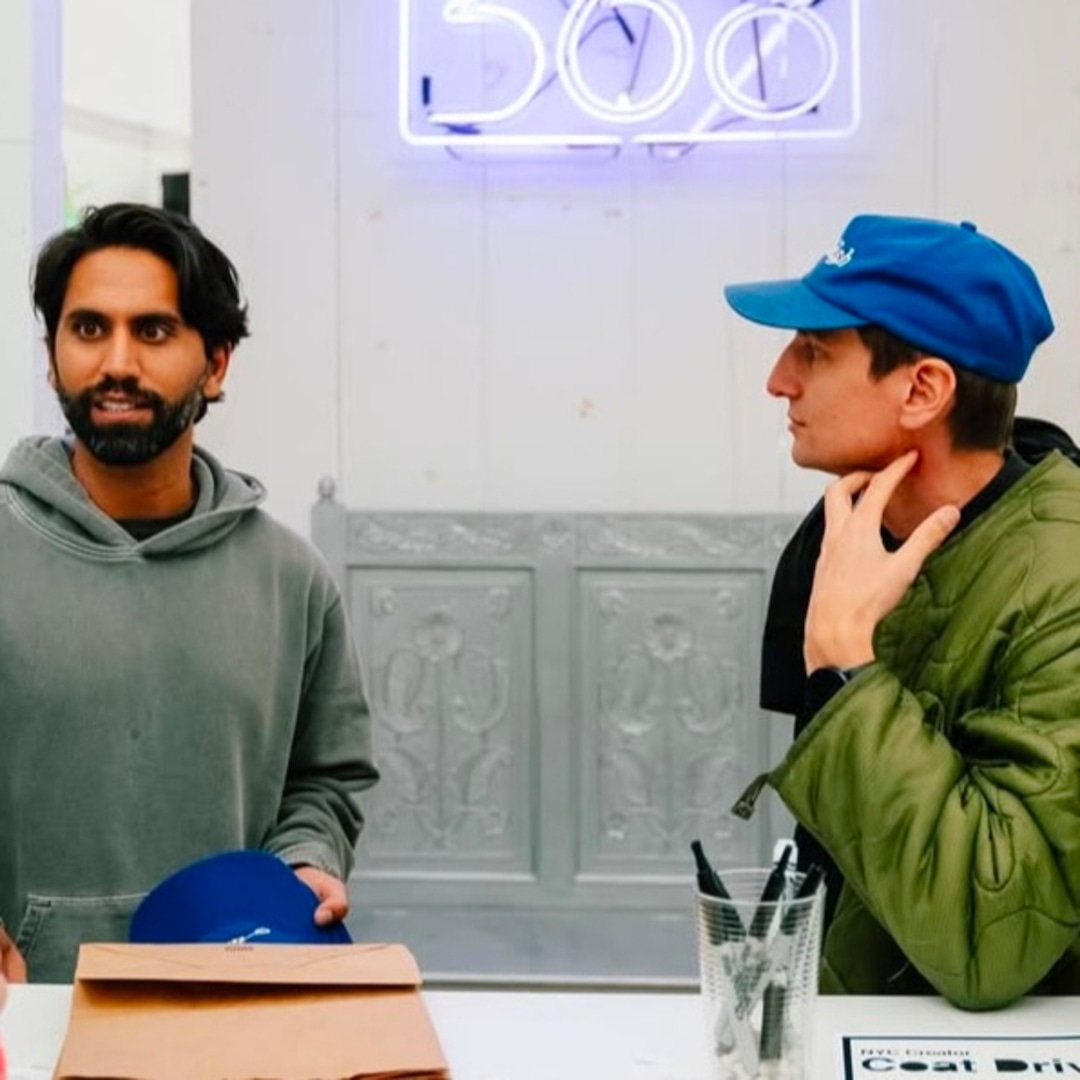
“Sometimes You Just Get Incredible Access”: Liza Mandelup on Caterpillar
Mar 17, 2023
Caterpillar.
David desperately wishes to change the color of his eyes. Thanks to an experimental procedure peddled by an Indian company called BrightOcular, his fantasy of physical transformation might actually manifest. Documentary filmmaker Liza Mandelup (who made our 25 New Faces of Film list in 2017) follows David on this journey in her sophomore feature Caterpillar, as he meets other BrightOcular patients in India and grapples with the not-so-subtle side effects of these implants. Unsurprisingly, many of these patients are Western people of color who’ve been overwhelmed with images of European features (which ostensibly represent the pinnacle of physical perfection) for their entire lives. As a direct result, many have become obsessed with the idea lightening their eyes as a way to align themselves with whiteness and just maybe manage to change the material conditions of their marginalization—or, in self-care culture speak, obtain the elusive air of “confidence,” “self-love” and finally feel like their “true selves” by rejecting their once immutable phenotypical characteristics. For a culture that continues to restrict healthcare and gender-affirming surgery for trans people, Americans certainly are obsessed with plastic surgery (and the international tourism often associated with it).
Social media has a heavy hand in perpetuating these feelings of body dysmorphia, and it’s no coincidence that David and other patients stumbled upon BrightOcular through its YouTube presence (which has appeared to diminish in the past year, likely due to the dangers of the surgery becoming more well-known). Mandelup’s debut, the 2019 doc Jawline, similarly investigated how social media has impacted our relationship to beauty and self-worth by following a fledgling teenage livestreamer named Austyn as he strives for online stardom (and sells hugs and other chaste physical encounters from anywhere between $25 and $280). In Mandelup’s work, beauty—or the dogged pursuit of it—isn’t just in the eye of the beholder. The society we live in clearly shapes these desires, and measuring up to that metric takes a toll on us all.
I spoke to Mandelup via email ahead of the film’s SXSW premiere. We discussed the origins of the project, Palmbomen II’s analog score and how she and her team got “incredible access” to shoot at BrightOcular’s headquarters in India.
Filmmaker: What was the process of researching this project like? Were the risks of the BrightOcular procedure known to you before starting the film, or were you discovering these risks alongside David?
Mandelup: I knew I wanted to make a film that explores themes of beauty and identity in relation to how we see ourselves through images, filters, apps. How does looking at yourself online all day change how you feel about yourself? I was doing a lot of reading and thinking about how this impacts people’s idea of themselves. During this time I was on shoot for another project and complimented this woman’s eyes. We got to talking and she told me she went to India and “got her eyes” and I honestly didn’t even understand what that meant. I later learned it was through a company called BrightOcular. She said they had a YouTube channel. I went home that night and looked at their YouTube channel and that was the beginning for me. Why would all these people get this? I knew from the start there were risks involved, but many people were willing to risk it for the chance to have different eyes that they could feel like they were born with. I was interested in finding a story here: who would do this and why? Here is a company that used YouTube to tell people that they could feel happier and life would be better if they changed the color of their eyes. I was fascinated by how this messaging was speaking to people. I had a lot of questions. I can only really dive into something that makes me genuinely want to understand what’s going on. This had that for me.
Filmmaker: Were there other subjects besides David who you were considering filming at any point? The film spends some time with fellow BrightOcular patients in India and patients who similarly needed to have the procedure reversed, but I’m curious how you settled on David as the film’s principal subject.
Mandelup: We chose three people to follow with the goal that one of them would become the story of Caterpillar. I really wanted to make something that would take you deeply into the psychology of how you find yourself on a YouTube rabbit hole and end up in India getting this eye implant. Once they got the procedure we would have to commit to anything we filmed with the single subject beforehand, so there would be no going back after that point. I was drawn to David’s story because he wanted to feel special and seen. This felt like it represented a lot of what I was thinking about with our image-obsessed culture and how we present ourselves. To not accept the situation you’re currently in and demand a better life is something I felt was a powerful story, one I could capture, and David loved the idea of being in a film. He really wanted to talk and open up. Once I understood his past and his relationship with his mom, I knew that this was a story that was unfolding in real time about finding happiness, acceptance and feeling valued by society.
Filmmaker: While the internet is still a palpable force in this film—Instagram posts, FaceTime calls, YouTube videos, image filters, etc.—the digital ether doesn’t feel present as a character in its own right. Why did you settle on only exploring these online landscapes through David’s personal interactions with them as opposed to offering a full survey of this particular corner of the internet?
Mandelup: I think that’s just my style of storytelling. I’d rather get to know one person deeply than survey an idea. I want to make films that allow people to walk away feeling like they’ve just made a new friend or really care about this person. I wanted this film to feel like a human connection. This required being committed to a singular perspective.
Filmmaker: Your film gives no easy answers, but there is certainly a sense of dread as it relates to social media severely increasing body dysmorphia and a drive for Eurocentric beauty standards at great personal risk to these individuals. Do you think that in general, the internet will continue to incubate and exacerbate these insecurities? Does the algorithm inevitably cater to our self-destructive anxieties as opposed to our healthier aspirations?
Mandelup: I think the idea that there are bottomless ways that people are telling you that you can and should be is something that is exacerbated on the internet. For every little thing you look up there’s tons of people telling you what to do and that it works. The self-destructive part of the algorithm is that it’s endless. It can suck you in and take you so far away from your own train of thought.
Filmmaker: The original music by Palmbomen II adds a really intriguing texture to the film. How did you settle on that collaboration, and what notes or influences did you exchange to nail the film’s score?
Mandelup: Palmbomen II is a genius. I have been working with him for years now across many projects. Everything we talked about was related to feeling the emotion of the scene in real time. He really gets into the film in a way that allows for him to turn emotions into score. Also, he creates music using analog equipment, so there’s a tactile feeling to his tracks. Sometimes I don’t even have notes on what he’s done. We can be very in sync.
Filmmaker: David’s comped BrightOcular treatment is tied to his agreeing to appear in promotional footage. Could you discuss your own process of obtaining access to BrightOcular and particularly your ability to keep filming when things went south in terms of David’s procedure? Was the film at all part of David’s agreement with BrightOcular, and were there ever moments when your access was imperiled?
Mandelup: BrightOcular invited us to film in India. Since they are an anonymous company, this meant no one from the company would meet us there. We never got to meet a single person working there. We just became part of the trip to India. No one ever told us to stop filming and we rolled with that. Sometimes you just get incredible access, and that can inspire you to want to stay with a film. The agreement to appear in their promo films was part of the story when I came across it—so many people we spoke to got their procedures for free because the company wanted to be able to use their promo video, images, get update videos, etc. It was a part of how their YouTube channel was able to stay so active—this was happening before we even came on board. It did help me to understand why so many people got involved in making these videos.
Publisher: Source link
Nicole Kidman’s Viral Getty Image Catalog
Nicole Kidman's Viral Getty Image Catalog Nicole Kidman has stepped back into the limelight to promote the new A24 erotic thriller Babygirl — and she’s looking as radiant as ever. The Academy Award-winning star has had an incredibly storied career,…
Jan 14, 2025
Hugh Jackman and Sutton Foster Have Steamy Makeout Session
The Music Man's final curtain call was in January 2023. But it wasn't the only thing to come to an end. In September of that year, Jackman and his wife of 27 years Deborra-Lee Furness announced their split."We have been blessed…
Jan 14, 2025
Mandy Moore Shares She’s Unsure If Her Home Survived
California Fires: Mandy Moore Shares She's Unsure If Her Home Survived On Tuesday, Mandy shared on her Instagram story that she, her children, and her pets left their home and were safe. "Evacuated and safe with kids, dog and cats.…
Jan 13, 2025
YouTubers Colin, Samir Lose Homes to L.A. Fire as Wives Are Pregnant
Angelina Jolie, Halle Berry, Jamie Lee Curtis & More Stars Are Giving Back Amid LA FiresYouTubers Colin Rosenblum and Samir Chaudry are opening up about their heartbreaking situations. The duo, otherwise known on the platform as Colin and Samir, recently…
Jan 13, 2025











